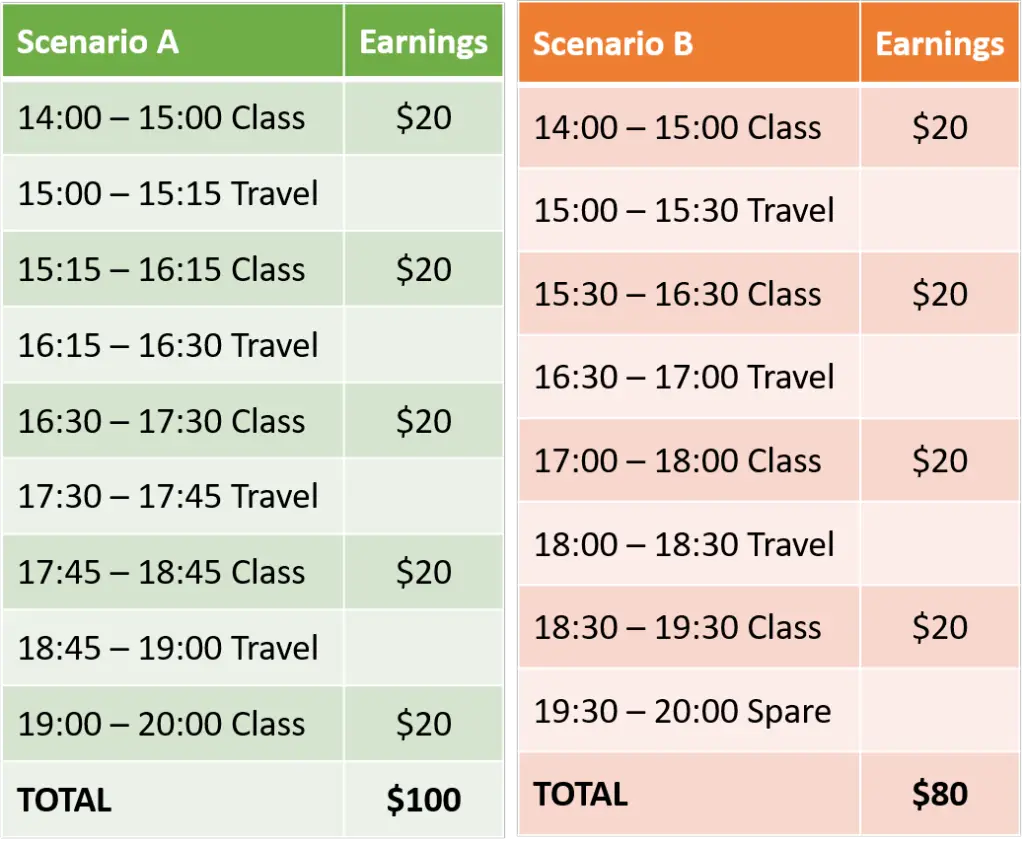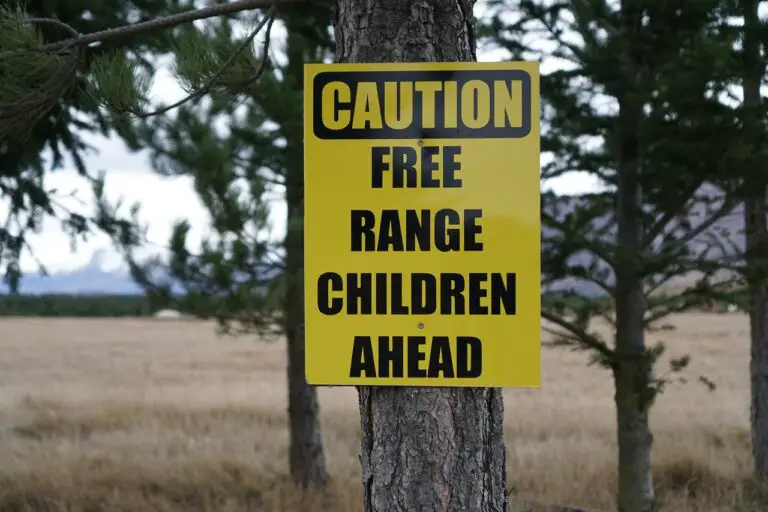When starting in-person private EFL/ESL lessons, one question that which will almost certainly come up is about where to hold your classes. Here’s my take, after five years of private tutoring.
Private EFL/ESL classes should take place in the student’s house, if possible. Lessons with children must be in a safe space with parents nearby in case of problems. With adults, a public location, like a café is, an option. Classes in your own home should be a last resort, especially if you live with other people.

The type of students you’re teaching determines the best location. There isn’t one definitive answer for all classes, and you’ll have to consider several factors for your specific circumstances.
This article is part of my big guide for becoming a private EFL/ESL teacher, and you can read the main article here: How to Get Started as an EFL/ESL Private Tutor: Full guide.
Where is the best place to hold private EFL/ESL classes?
When you’re deciding where to have private EFL/ESL classes, consider three factors: comfort/safety, space & materials, and travel time.
Comfort and safety
This is the most important. Safety is vital for all your students, so you want them to be in a place where they can’t get hurt. That’s obvious. But when it comes to teaching children, the stakes are higher.
Teaching children in a public space that isn’t an education centre is a risk, because there are things you can’t control and people who may interfere with the class. There are also many potential distractions. Children might not be able to get into the right frame of mind to learn in a busy café, for example.
I’d strongly advise against holding classes with kids in your own home, unless a parent or family member is present throughout. It’s an alien space for them, so they may feel uncomfortable. And if you live with other people who come and go during the class, there’s another source of distraction and discomfort.

Think about protecting yourself, too. Most of the time things will be fine, but children can struggle to control their emotions and you don’t want to be dealing with students damaging your property, or even making accusations about you.
If classes take place in the students’ home, you reduce this risk. On top of that, they’re in a place they’re familiar with, meaning they’ll have fewer barriers to learning.
With adults, teaching in a public space may be your best option. If their home is noisy and full of distractions, a quiet corner of the local café may help them focus.
Space and materials
If you’re teaching conversation classes to adults, space and materials aren’t much of an issue.
However, if you’re doing dynamic activities or project-based lessons with a group of children, you’ll need to think about how much space they have to move around and what materials you can use.
Does the location have a nice big table? Is there some empty floor space to get up and do some physical games? Can you use the garden? Is there somewhere you can keep materials during the week so you don’t have to bring them every time?
Talk to your students (or their parents) about the type of classes you’ll be giving and what kind of space you need.
Travel time
My personal rule is not to travel more than twenty minutes between classes. Fortunately for me, I can walk across my whole town in that time. Working in a city is different.
You may want to relax this rule if you’re not relying on private classes for income, but instead using them to get a bit of extra cash and don’t need to squeeze the maximum amount of classes into the day. But if time is important, you don’t want to lose hours between lessons when you could be getting paid.
Imagine you have 6 hours of the day in which you can teach, and you charge $20 for an hour-long class.
$20 is a decent rate for a private EFL/ESL class, but you could earn even more. Learn how to decide what price to charge for your classes in my article How Much Should You Charge for Private EFL/ESL Classes?
In scenario A, you travel 15 minutes between each lesson. That means you can teach 5 hours with just one hour lost travelling. You’d earn $100 a day.

In scenario B, you travel 30 minutes between classes. You could only fit in 4 classes in the six-hour period, meaning your daily earnings would be $80. The difference is $20 a day. Perhaps that doesn’t seem like much, but if you work 5 days a week for 40 weeks in the year, you’d lose $4,000 a year in dead time.
Also, factor in the cost of fuel if you’re driving, or tickets for public transport if you’re going by bus or train. Get students who live close to you, ideally in walking distance, and you’ll save a lot.
Not sure how long your classes should be? Learn the best duration for private EFL/ESL classes by reading my article How Long Should Private EFL/ESL Classes Be: Tips included.
How to use unqiue locations to improve private EFL/ESL lessons
Your private classes don’t always need to be sitting around a table. In fact, they don’t necessarily need to be indoors.
If you work in a country where the weather allows it, could you have classes in the garden? What about taking your kids to the local family friendly park or for a walk around town? Accompanied by parents, of course.
A few times, I’ve had classes with adults in their car. We had a chat while driving around, seeing interesting places, talking about the rules of the road, and comparing driving culture in different countries.
Conclusion
Most of the time, students expect classes to take place in their home. This is best.
If you can’t do that, the next best option for children is in your home with a parent present. For adults, it’s a quiet public space.
And think twice about agreeing to classes on the other side of the city. Especially if you’re just getting started, you may be tempted to accept the first interested student, even if they’re miles away. It means you can start earning sooner, but in the long run, you’ll lose valuable time in which you could be teaching (or enjoying your life) on a long commute.
Catch up on all the articles in the Getting Started as a Private EFL/ESL Tutor guide:
How to Get Started as an EFL/ESL Private Tutor: Full guide
Requirements and Qualifications to Become an EFL/ESL Tutor
How to Get Private EFL/ESL Classes: Quickly find students
How Long Should Private EFL/ESL Classes Be: Tips included
How Much Should You Charge for Private EFL/ESL Classes?
Where Should In-Person Private EFL/ESL Classes Take Place?
Make Sure You Get Paid for Private EFL/ESL Classes
9 Items Every EFL/ESL Teacher Needs for Brilliant Classes








